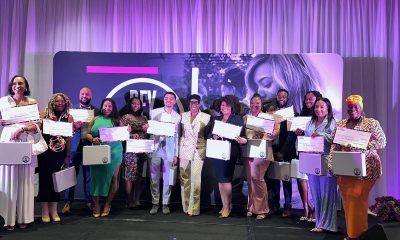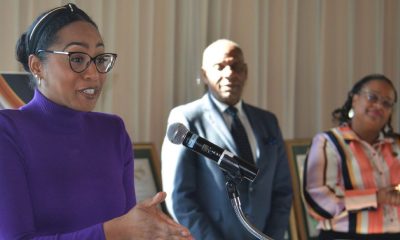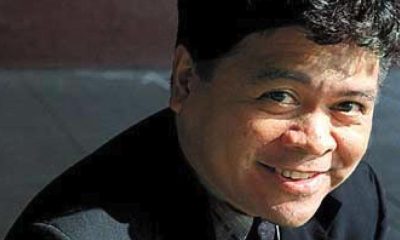Activism
Golden State Warriors’ Draymond Green Takes Defense Skills to New Arena

Draymond Green, 30, has won three National Basketball Association (NBA) Championships with the San Francisco-based Golden State Warriors and is known to be an agitator on the court.
Now, the three-time NBA All-Defensive First Team selection has mounted an attack off the hardwood in another arena: Politics. Green is speaking out, online and off, expressing his displeasure for Assembly Bill (AB) 1998, the “Dental Practice Act,” which is authored by Assemblymember Evan Low (D-Campbell).
Assemblymember Evan Low (D- Silicon Valley) on the floor California State Assembly June 10, 2020. (photo by Antonio Ray Harvey)
If passed by the California Senate, AB 1998 would make it more difficult to access teledentistry services by requiring an in-person visit to a dentist.
The bill would also prohibit internet companies from offering direct-to-consumer products like clear aligners or other orthodontics to Californians until legislation is passed that establishes parameters for how teleorthodontic companies may operate.
Last week, Green fired off a series of tweets directed at AB 1998 and Low. At a Business and Professions Committee hearing on AB 1998 held in May, Low had opened up his presentation to the members of the committee with a salvo declaring that teledentistry and telehealth are “telecrap.”
You’re clearly trying to minimize what I’m saying because I’m an ‘NBA champion’, but I’m actually coming at it as someone who grew up with nothing. And who’s mom sacrificed to get me braces. How many others can’t afford it? Kids who grew up like me and look like me. @Evan_Low https://t.co/Pe2rBywTTG
— Draymond Green (@Money23Green) July 10, 2020
“This will disproportionately hurt communities of color; not everyone can go to health-care providers,” Low said. “The reality is that subpar treatment can do real harm, the risk is too high.”
But Green says that he is standing up for disadvantaged African Americans who can’t afford to just drop into a dentist’s office to get X-rays and clearance before they can purchase dental products they need from companies like SDC. But his objection is also personal.
Two days before his Twitter rant, he sent a two-page letter to several California politicians explaining the hardship he once experienced trying to get affordable dental care.
In it, the athlete said his mother struggled to pay $7,000 for the metal braces he wore between his eighth- and 12th-grade years. He also wrote that he broke his retainers when he arrived at Michigan University and couldn’t leave to fix them because of the strict demands of his basketball schedule.
Because of “crooked teeth,” he wrote, smiling wasn’t a gesture of his for many years.
He also shared personal stories of how affordable direct-mail dental products helped him fix his teeth and regain his confidence. “After seven years of hiding my smile, I made a decision that I was going to finally fix my teeth again. Only this time I decided that I would try invisible aligners. I came across a teledentistry platform with licensed dentists by the name of SmileDirectClub,” Green stated in the letter.
Limiting access to such products to others seemed unfair to Green.
“Do you want to tell them they’re not worthy of a good smile? They’re not worthy of confidence, employment opportunities, and so many other benefits, a good smile brings? @Evan_Low,” Green tweeted.
Do you want to tell them they’re not worthy of a good smile? They’re not worthy of the confidence, employment opportunities, and so many other benefits a good smile brings? @Evan_Low
— Draymond Green (@Money23Green) July 10, 2020
However, Green’s political pushback against AB 1998 may also be rooted in more than one stake the athlete has in teledentistry. Green has a financial investment in the SmileDirectClub (SDC), a global leader in the online dental care industry. In September 2019, Forbes reported that Green started investing in SDC four years earlier in 2015 at a $150 million valuation. The financial publication also mentioned that Green could make 40 times more from his investment. SDC began trading publicly on Sept. 12, 2019, according to Forbes.
But Green ascribes the issue of profits more to the idea of protecting dentists.
“The only issue of profits here is you giving more to dentists, while, once again, underserved communities are shut out. Sounds like you’d prefer if I shut up and dribble @Evan_Low,” Green tweeted on July 10, the day Low’s comment surfaced in the media.
In his letter, Green asserted that because Assemblymember Low’s constituents are among the richest Californians, and that maybe Low is unaware of how his legislation might hurt poor Californians.
“If there is something I’m missing as to why you would consider adopting a bill that would take away doctor discretion to subject a patient to radiation, that would also limit access and significantly increase the cost of dental care then let’s set up a call to discuss,” he offered. “This is California. We’re supposed to be leading on these issues. Instead, this bill is a step in the wrong direction.”
Low’s district covers parts of the South Bay and Silicon Valley. Home to a number of tech companies, the area is more than 50% white and under 3% African American. Latinos account for about 17%.
But Low believes the teledentistry industry takes advantage of poor communities. “This will disproportionately hurt communities of color; not everyone can go to health-care providers,” Low said. “The reality is that subpar treatment can do real harm, the risk is too high.”
Green told recipients of his letter that the California State National Association for the Advancement of Colored People (NAACP) and the California Black Chamber of Commerce are all opposed to AB 1998.
In March, California State NAACP President Alice Huffman asked the Legislature to knock down any bill that would create an obstacle to affordable dental care.
Huffman said SDC’s teledentistry platform for clear aligner therapy treatments has helped more than 100,000 Californians, including African Americans.
“Now, more than ever, the African American community needs as many options as possible to close the disparity gap for oral health care. African Americans and other people of color have the right to affordable, quality health care treatment,” Huffman said.
Activism
Books for Ghana
We effectively facilitated cross-continent community building! We met the call and provided 400 books for ASC’s students at the call of the Minister of Education. We supported the work of a new African writer whose breakout novel is an action-packed depiction of a young woman steeped in Ghanaian culture who travels to the USA for college, all the while experiencing the twists, turns, and uncertainties that life brings.
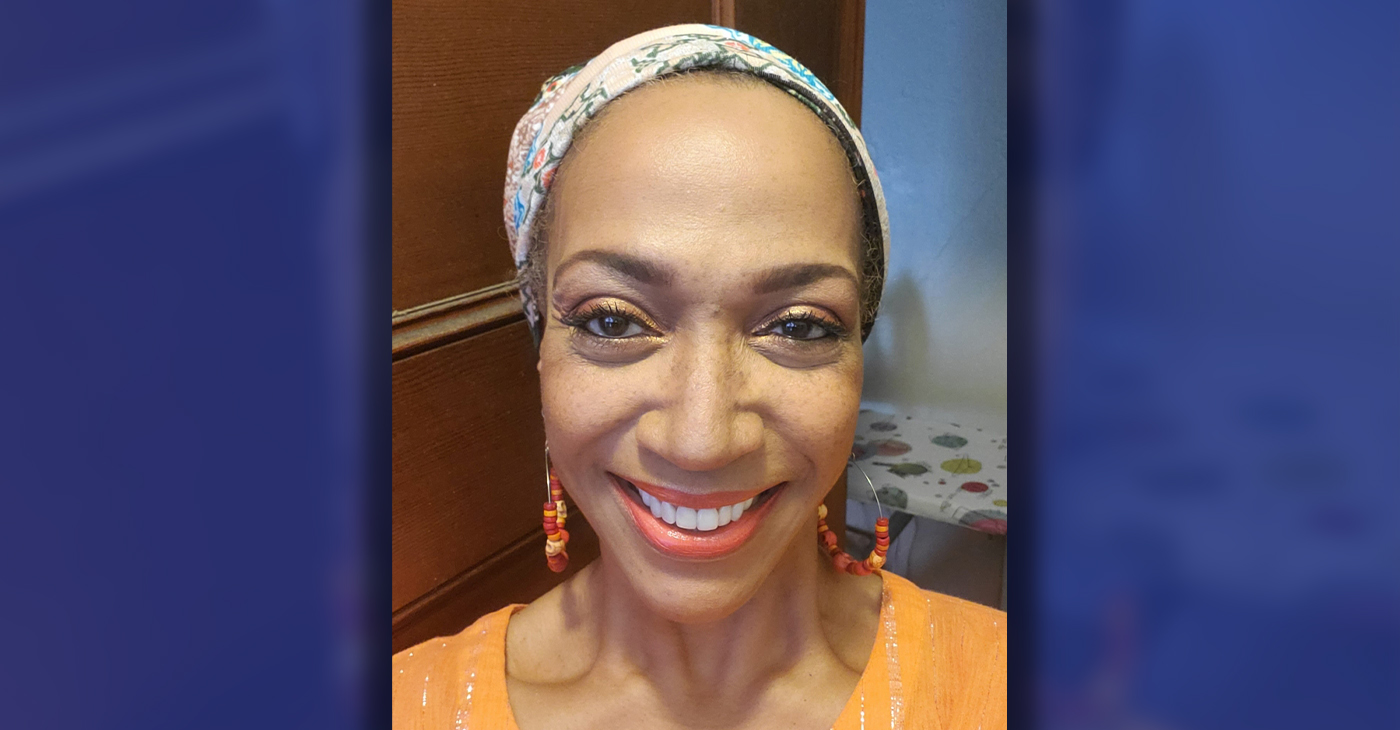
By Min. Rauna Thurston, Chief Mpuntuhene Afua Ewusiwa I
My travels to Afrika began in June 2022, on a tour led by Prof. Manu Ampim, Director of the organization Advancing The Research. I was scheduled to become an ordained Minister by Wo’se Community of the Sacred African Way. It was vital that my feet touch the soil of Kemet and my spirit connect with the continent’s people before ordination.
Since 2022, I’ve made six trips to Afrika. During my travels, I became a benefactor to Abeadze State College (ASC) in Abeadze Dominase, Ghana, originally founded by Daasebre Kwebu Ewusi VII, Paramount Chief of Abeadze Traditional Area and now run by the government. The students there were having trouble with English courses, which are mandatory. The Ghanaian Minister of Education endorsed a novel written by 18-year-old female Ghanaian first-time writer, Nhyira Esaaba Essel, titled Black Queen Sceptre. The idea was that if the students had something more interesting to read, it would evoke a passion for reading; this seemed reasonable to me. Offer students something exciting and imaginative, combined with instructors committed to their success and this could work.
The challenge is how to acquire 800 books?!
I was finishing another project for ASC, so my cash was thin and I was devoid of time to apply for annual grants. I sat on my porch in West Oakland, as I often do, when I’m feeling for and connecting to my ancestors. On quiet nights, I reminisce about the neighborhood I grew up in. Across the street from my house was the house that my Godfather, Baba Dr. Wade Nobles and family lived in, which later became The Institute for the Advanced Study of Black Family Life & Culture (IASBFLC). Then, it came to me…ancestors invited me to reach out to The Association of Black Psychologists – Bay Area Chapter (ABPsi-Bay Area)! It was a long shot but worth it!
I was granted an audience with the local ABPsi Board, who ultimately approved funding for the book project with a stipulation that the Board read the book and a request to subsequently offer input as to how the book would be implemented at ASC. In this moment, my memory jet set to my first ABPsi convention around 2002, while working for IASBFLC. Returning to the present, I thought, “They like to think because it feels good, and then, they talk about what to do about what they think about.” I’m doomed.
However, I came to understand why reading the book and offering suggestions for implementation were essential. In short: ABPsi is an organization that operates from the aspirational principles of Ma’at with aims of liberating the Afrikan Mind, empowering the Afrikan character, and enlivening: illuminating the Afrikan spirit. Their request resulted in a rollout of 400 books in a pair-share system. Students checked out books in pairs, thereby reducing our bottom line to half of the original cost because we purchased 50% fewer units. This nuance promoted an environment of Ujima (collective work & responsibility) and traditional Afrikan principles of cooperation and interdependence. The student’s collaborative approach encouraged shared responsibility, not only for the physical book but for each other’s success. This concept was Dr. Lawford Goddard’s, approved by the Board, with Dr. Patricia “Karabo” Nunley at the helm.
We effectively facilitated cross-continent community building! We met the call and provided 400 books for ASC’s students at the call of the Minister of Education. We supported the work of a new African writer whose breakout novel is an action-packed depiction of a young woman steeped in Ghanaian culture who travels to the USA for college, all the while experiencing the twists, turns, and uncertainties that life brings. (A collectible novel for all ages). A proposed future phase of this collaborative project is for ASC students to exchange reflective essays on Black Queen Sceptre with ABPsi Bay Area members.
We got into good trouble. To order Black Queen Sceptre, email esselewurama14@gmail.com.
I became an ordained Minister upon returning from my initial pilgrimage to Afrika. Who would have imagined that my travels to Afrika would culminate in me becoming a citizen of Sierra Leone and recently being named a Chief Mpuntuhene under Daasebre Kwebu Ewusi VII, Paramount Chief of Abeadze Traditional Area in Ghana, where I envision continued collaborations.
Min. Rauna/Chief Mpuntuhene is a member of ABPsi Bay Area, a healing resource committed to providing the Post Newspaper readership with monthly discussions about critical issues in Black Mental Health, Wealth & Wellness. Readers are welcome to join us at our monthly chapter meetings every 3rd Saturday via Zoom and contact us at bayareaabpsi@gmail.com.
Activism
2024 in Review: Seven Questions for Frontline Doulas
California Black Media (CBM) spoke with Frontline Doulas’ co-founder Khefri Riley. She reflected on Frontline’s accomplishments this year and the organization’s goals moving forward.
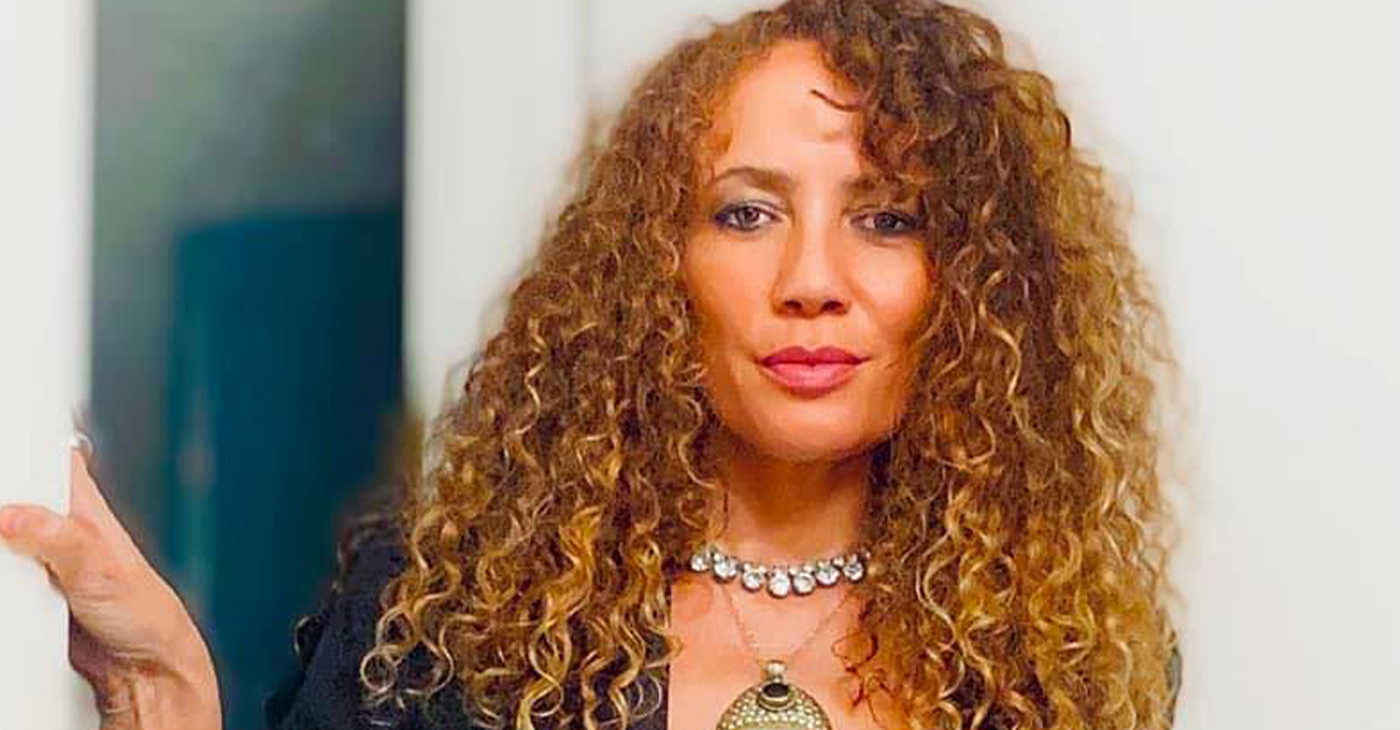
By Edward Henderson, California Black Media
Frontline Doulas provides African American families non-medical professional perinatal services at no cost.
This includes physical, emotional, informational, psychosocial and advocacy support during the pregnancy, childbirth and postpartum period. Women of all ages — with all forms of insurance — are accepted and encouraged to apply for services.
California Black Media (CBM) spoke with co-founder Khefri Riley. She reflected on Frontline’s accomplishments this year and the organization’s goals moving forward.
Responses have been edited for clarity and length.
Looking back at 2024, what stands out to you as your most important achievement and why?
In 2024, we are humbled to have been awarded the contract for the Los Angeles County Medical Doula Hub, which means that we are charged with creating a hub of connectivity and support for generating training and helping to create the new doula workforce for the medical doula benefit that went live in California on Jan. 1, 2023.
How did your leadership and investments contribute to improving the lives of Black Californians?
We believe that the revolution begins in the womb. What we mean by that is we have the potential and the ability to create intentional generational healing from the moment before a child was conceived, when a child was conceived, during this gestational time, and when a child is born.
And there’s a traditional saying in Indigenous communities that what we do now affects future generations going forward. So, the work that we do with birthing families, in particular Black birthing families, is to create powerful and healthy outcomes for the new generation so that we don’t have to replicate pain, fear, discrimination, or racism.
What frustrated you the most over the last year?
Working in reproductive justice often creates a heavy burden on the organization and the caregivers who deliver the services most needed to the communities. So, oftentimes, we’re advocating for those whose voices are silenced and erased, and you really have to be a warrior to stand strong and firm.
What inspired you the most over the last year?
My great-grandmother. My father was his grandmother’s midwife assistant when he was a young boy. I grew up with their medicine stories — the ways that they healed the community and were present to the community, even amidst Jim Crow.
What is one lesson you learned in 2024 that will inform your decision-making next year?
I find that you have to reach for your highest vision, and you have to stand firm in your value. You have to raise your voice, speak up and demand, and know your intrinsic value.
In a word, what is the biggest challenge Black Californians face?
Amplification. We cannot allow our voices to be silent.
What is the goal you want to achieve most in 2025?
I really would like to see a reduction in infant mortality and maternal mortality within our communities and witness this new birth worker force be supported and integrated into systems. So, that way, we fulfill our goal of healthy, unlimited birth in the Black community and indeed in all birthing communities in Los Angeles and California.
Activism
U.S. House Minority Leader Hakeem Jeffries Speaks on Democracy at Commonwealth Club
Based on his first speech as House minority leader, “The ABCs of Democracy” by Grand Central Publishing is an illustrated children’s book for people of all ages. Each letter contrasts what democracy is and isn’t, as in: “American Values over Autocracy”, “Benevolence over Bigotry” and “The Constitution over the Cult.”

By Linda Parker Pennington
Special to The Post
House Minority Leader Hakeem Jeffries addressed an enthusiastic overflow audience on Monday at San Francisco’s Commonwealth Club, launching his first book, “The ABCs of Democracy.”
Based on his first speech as House minority leader, “The ABCs of Democracy” by Grand Central Publishing is an illustrated children’s book for people of all ages.
Each letter contrasts what democracy is and isn’t, as in: “American Values over Autocracy”, “Benevolence over Bigotry” and “The Constitution over the Cult.”
Less than a month after the election that will return Donald Trump to the White House, Rep. Jeffries also gave a sobering assessment of what the Democrats learned.
“Our message just wasn’t connecting with the real struggles of the American people,” Jeffries said. “The party in power is the one that will always pay the price.”
On dealing with Trump, Jeffries warned, “We can’t fall into the trap of being outraged every day at what Trump does. That’s just part of his strategy. Remaining calm in the face of turmoil is a choice.”
He pointed out that the razor-thin margin that Republicans now hold in the House is the lowest since the Civil War.
Asked what the public can do, Jeffries spoke about the importance of being “appropriately engaged. Democracy is not on autopilot. It takes a citizenry to hold politicians accountable and a new generation of young people to come forward and serve in public office.”
With a Republican-led White House, Senate, House and Supreme Court, Democrats must “work to find bi-partisan common ground and push back against far-right extremism.”
He also described how he is shaping his own leadership style while his mentor, Speaker-Emeritus Nancy Pelosi, continues to represent San Francisco in Congress. “She says she is not hanging around to be like the mother-in-law in the kitchen, saying ‘my son likes his spaghetti sauce this way, not that way.’”
-

 California Black Media4 weeks ago
California Black Media4 weeks agoCalifornia to Offer $43.7 Million in Federal Grants to Combat Hate Crimes
-

 Black History4 weeks ago
Black History4 weeks agoEmeline King: A Trailblazer in the Automotive Industry
-

 California Black Media4 weeks ago
California Black Media4 weeks agoGov. Newsom Goes to Washington to Advocate for California Priorities
-

 Activism3 weeks ago
Activism3 weeks agoOakland Post: Week of November 27 – December 3, 2024
-

 California Black Media4 weeks ago
California Black Media4 weeks agoCalifornia Department of Aging Offers Free Resources for Family Caregivers in November
-

 Activism4 weeks ago
Activism4 weeks agoOCCUR Hosts “Faith Forward” Conference in Oakland
-

 Activism4 weeks ago
Activism4 weeks agoRichmond Seniors Still Having a Ball After 25 Years
-

 Activism2 weeks ago
Activism2 weeks agoButler, Lee Celebrate Passage of Bill to Honor Congresswoman Shirley Chisholm with Congressional Gold Medal




